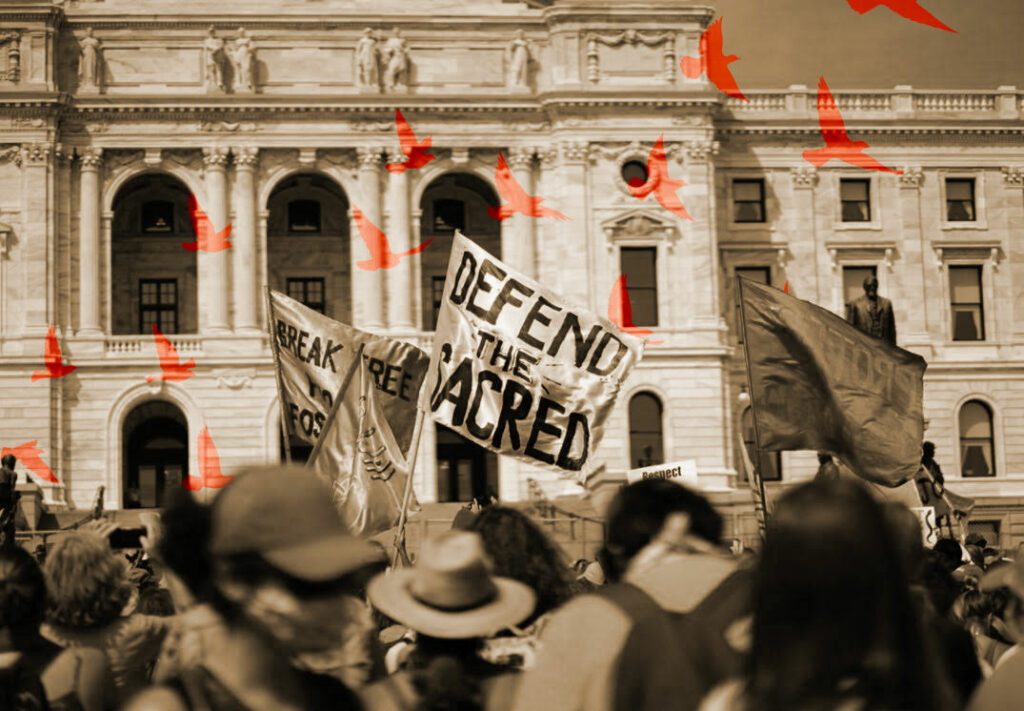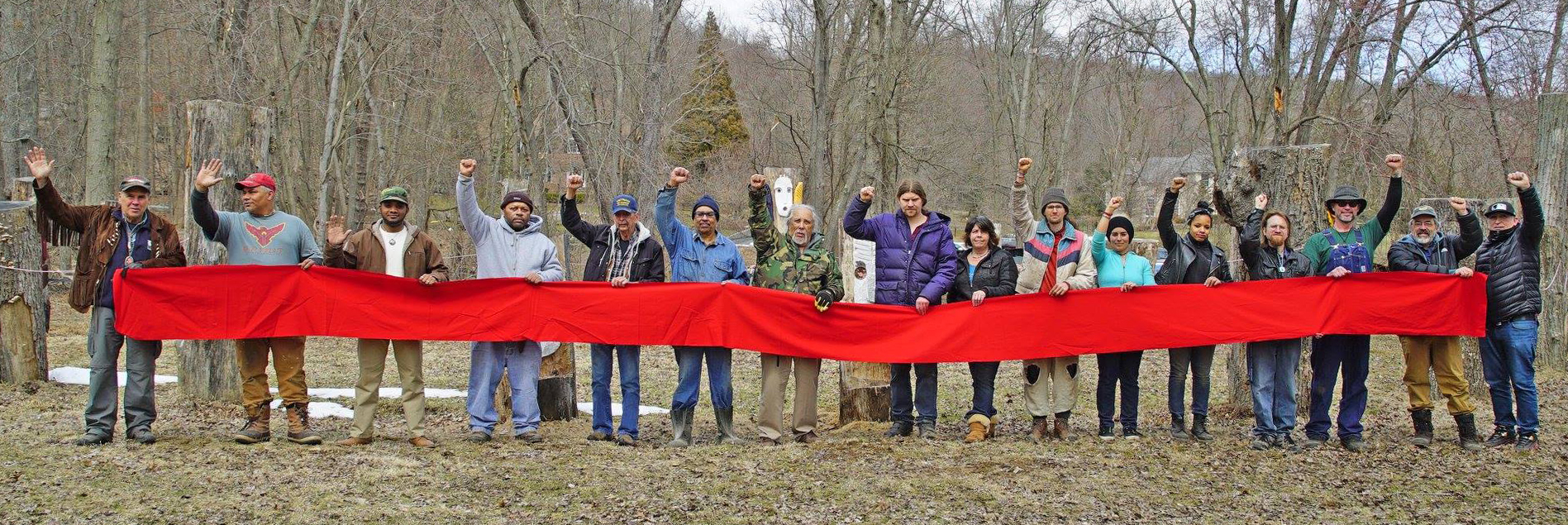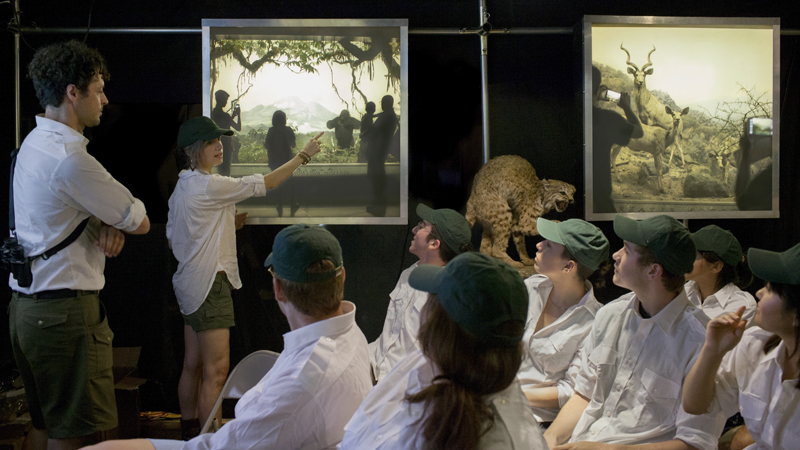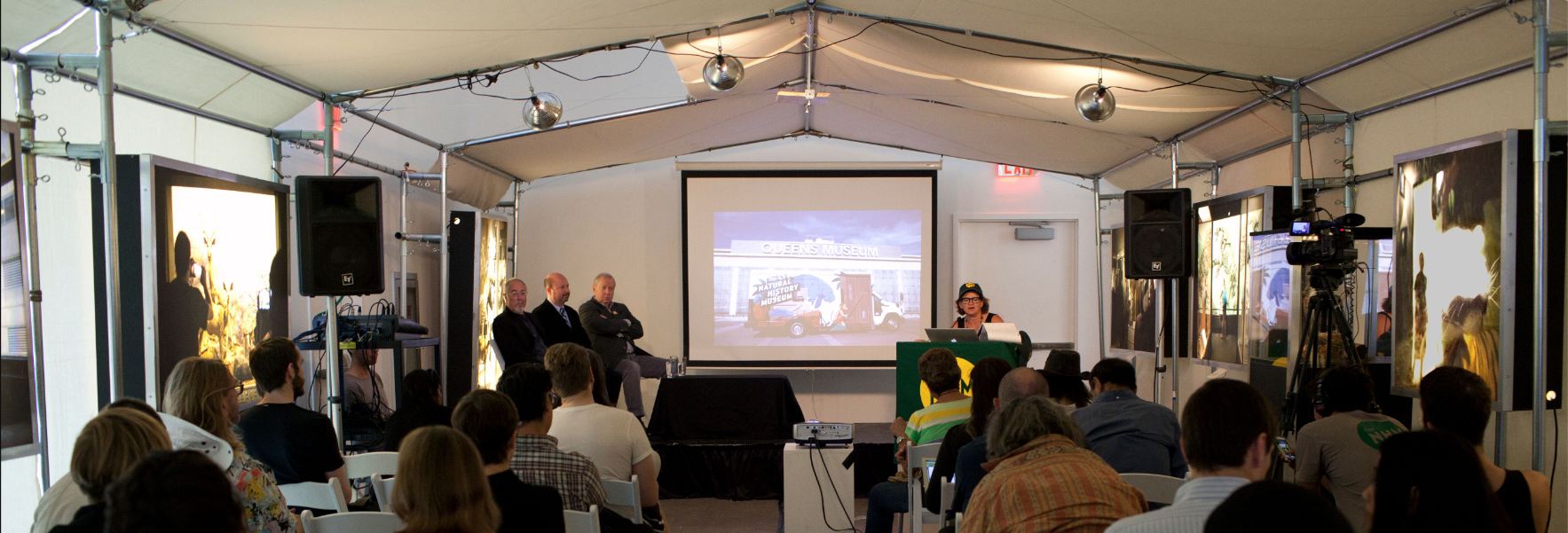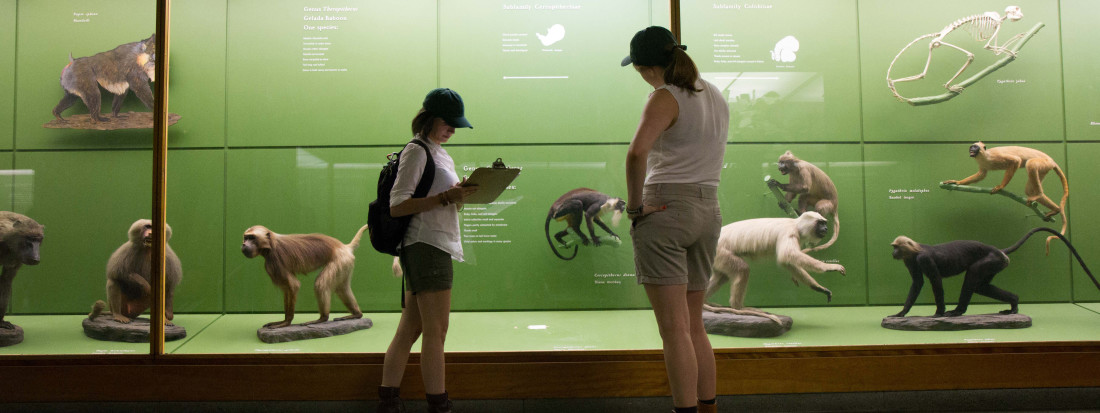The Natural History Museum: Public Practice in a Time of Crisis
Tuesday, September 23, 5pm ET
A virtual guest lecture and discussion with Beka Economopoulos (Director of The Natural History Museum) that situates museum practice within urgent social and environmental crises. Drawing from NHM’s history of art-led cultural organizing and public history projects, the talk examines how museums and cultural institutions can—and should—use aesthetic practice, community engagement, and environmental humanities to advance social and ecological justice. The session will address funding and the myth of institutional “neutrality,” ethical and political challenges in community-engaged curatorial work, and practical strategies for practice-based public humanities.
Topics to be covered:
— Museums, cultural institutions, and crisis: roles, responsibilities, and limits
— Art + cultural organizing + public history + environmental humanities — how they intersect in practice
– NHM history of practice: model, methods, and key projects
— Ethics & politics of community-engaged curatorial and artistic practice (partnership, compensation, consent, authorship)
— Institutional funding, power, and the myth of neutrality
— Practical strategies for accountability, sustainability, and movement-aligned programming
This session links the theoretical concerns of public humanities—history and memory, museums and memorials, expertise and experience, community cultural development, and material culture—with the tactical work of an activist, museum-as-platform practice. Beka will trace NHM’s trajectory and methods, showing how art, cultural organizing, public history, and environmental humanities intersect to create projects that respond to overlapping crises (ecological collapse, displacement, socio-political upheaval).
We’ll interrogate the idea of institutional “neutrality,” examine how funding shapes (and constrains) public-facing work, and discuss ethical and political decisions that arise when curating with and for communities. The session will be conversational and interactive: students should expect case studies from NHM projects, questions about partnership and accountability, and concrete prompts for situating practice within larger movements for justice.

